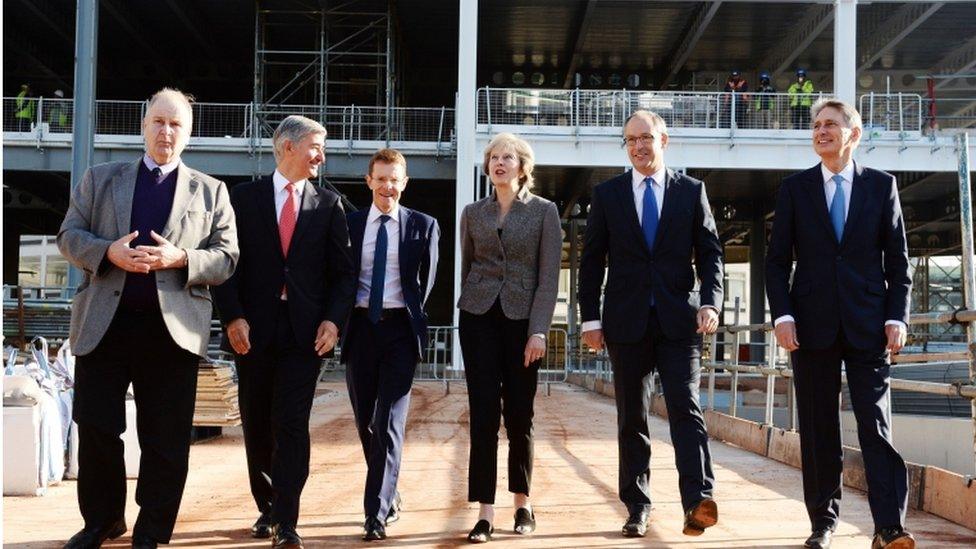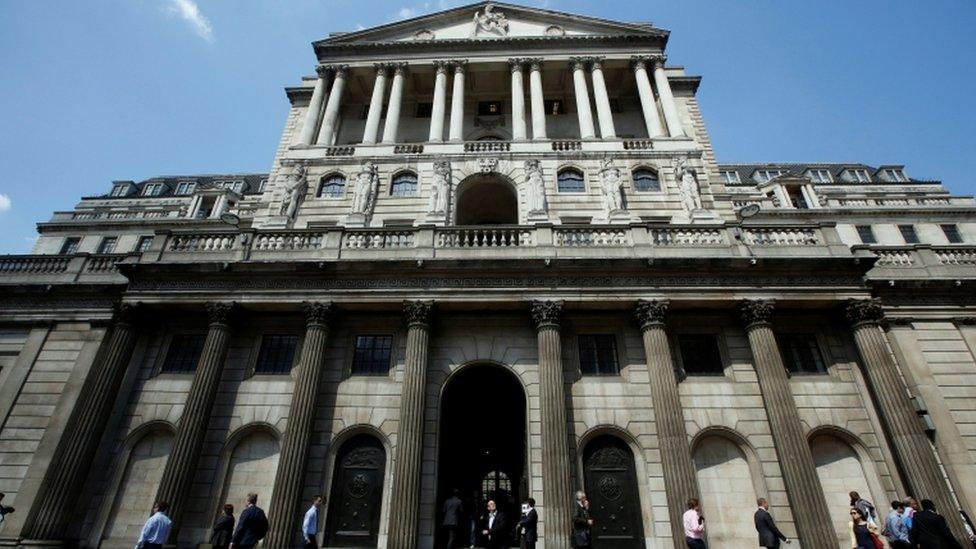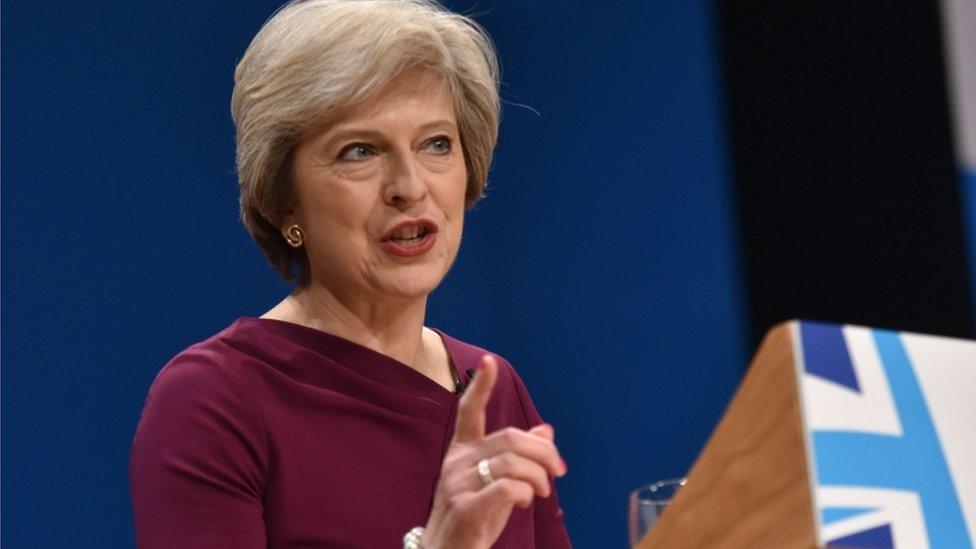'Major shift' in economy policy planned
- Published

Chancellor Philip Hammond is planning to embark on a major shift in gear on economic policy as the government embraces a more interventionist approach with increased spending on infrastructure projects.
A senior adviser to Prime Minister Theresa May has told BBC Newsnight that the chancellor is expected to herald a move towards a greater focus on fiscal policy - tax and spending - in his Autumn Statement on 23 November.
The move towards a more Keynesian approach towards the economy will mark a departure from former chancellor George Osborne's reliance on what he called "monetary activism". This covered interest rates and the purchase of assets by the Bank of England known as quantitative easing.
George Freeman, the chairman of the prime minister's policy board, told Newsnight that Mrs May had used her speech to the Conservative party conference in Birmingham to signal "loud and clear" that she had concerns about relying so heavily on monetary policy. The PM said ultra low interest rates had produced "bad side effects", notably by hitting savers.
'Listen to the roar'
Newsnight understands that the remarks by the prime minister show that she now believes the time is approaching for a shift in emphasis in the defining mechanism for running the economy. She believes that in future it would be wise to lean in favour of tax and spending to allow for greater public investment.
The chancellor will set out the fresh thinking in his autumn statement on 23 November, marking a break with the era of Mr Osborne who championed "monetary activism" and "fiscal responsibility" - low interest rates and spending restraint with a focus on deficit reduction.

Downing Street has made clear monetary policy is solely the preserve of the independent Bank of England (pictured above)
Mr Freeman told Newsnight: "Philip Hammond is going to set this out in the Autumn Statement. But Theresa has been very clear that this model of the emergency QE package, bail out the banks, stabilise the economy has had a very profound effect on the distribution of wealth.
"Those with assets have done very much better than those without. We have to listen to the roar we heard this year and we have to think with money available at 0% - and we want to drive an industrial strategy, getting infrastructure built - we need to make sure we are looking at all the mechanisms for making that money flows properly."
He confirmed Downing Street still supports the Bank of England's independence which means it has sole control over monetary policy and it will face no restrictions on the setting of interest rates. The bank's governor, Mark Carney, decides on quantitative easing though he has to seek the approval of the chancellor.
New approach
Government sources have indicated that the Treasury will continue to accept the governor's advice on quantitative easing. But Mr Freeman signalled that the prime minister believes the UK economy should enter a new era.
He told Newsnight: "It is up to the Bank of England obviously to set out with their mandate how they handle that. But she is signalling loud and clear that we need to make sure we understand what effect this model of growth has had on those who are paying for it - the citizens of this country - and to use every lever we have to make sure the economy works for them."

Mrs May believes a new approach is needed for two reasons. In the first place she believes that a new economic era, as the government relaxes Mr Osborne's deficit reduction plan in light of the EU referendum, requires a fresh approach to economic management.
But she also believes that the government needs to do more to help lower income groups. She thinks low interest rates have helped people with assets but have hit those who rely on savings.
The prime minister first outlined her belief in a new approach in a speech in Birmingham on 11 July when she launched her national campaign for the Tory leadership.
She echoed these words in her conference speech on Wednesday, also delivered in Birmingham, when she said of current monetary policy: "People with assets have got richer. People without them have suffered. People with mortgages have found their debts cheaper. People with savings have found themselves poorer."